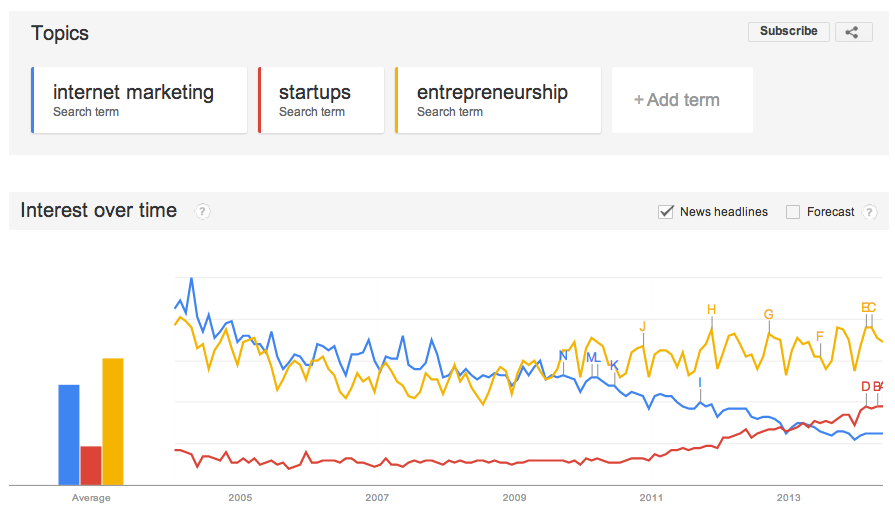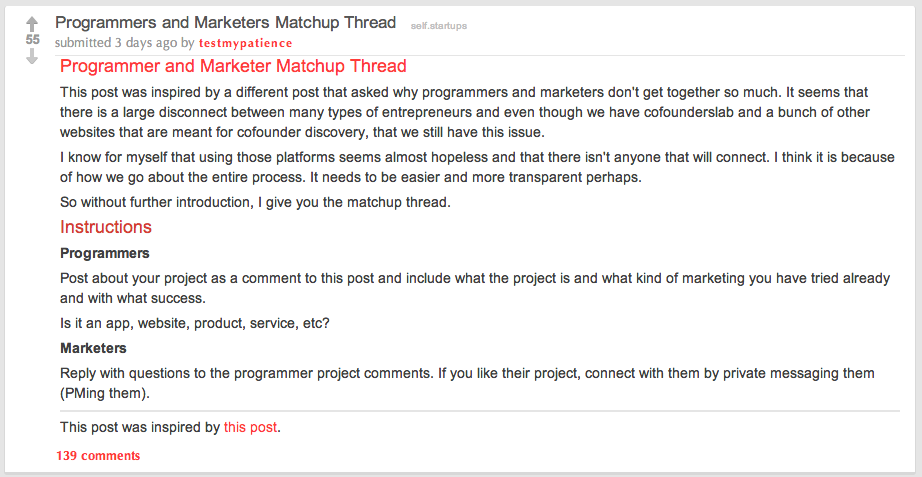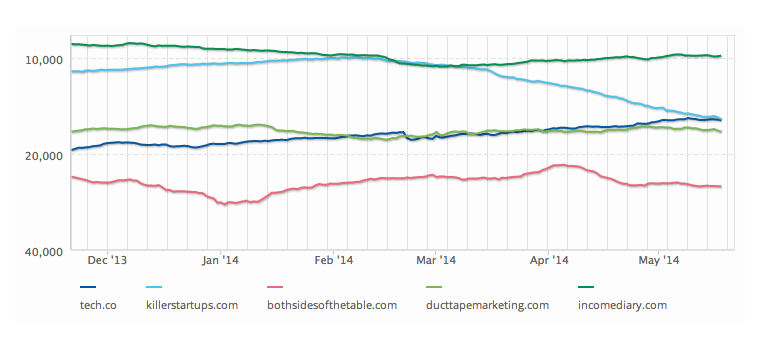By now, we’re all familiar with Eric Ries’ famous book “The Lean Startup: How Today’s Entrepreneurs Use Continuous Innovation to Create Radically Successful Businesses.” If you haven’t already, I highly recommend reading it. I would say of all the books I’ve read on entrepreneurship and startups, it’s definitely one of the top 2 that have influenced my life.
Most of us apply Lean Startup techniques like MVP (minimum viable testing) and rapid iterations to software development only. However, I’ve found it to be ridiculously useful for any kind of entrepreneurial adventure I’ve done, whether it’s a service-based business or figuring out blog topics to write about.
Seeing as this is a new blog, I’ve been searching for a new direction and decided to apply some of these techniques to find a niche I am passionate about and that has value. Check out my steps and results below.
For those who don’t know, I have been programming since 8th grade and transitioned to business in college. Having built up a successful blog, I always wondered why internet marketers and programmers don’t get together to build some cool stuff and kick some ass. I’ve experienced both sides of the table, and don’t get it. Yes, there are some examples like Neil Patel with CrazyEgg and KissMetrics, but it’s not mainstream.
So, I decided to ask the question on Reddit
1. Crowdsource The Idea With Reddit
I asked the Reddit community, “Why don’t programmers and marketers get together more frequently.” My post received over 44 comments. Overwhelming, the common reply was: “As a developer I’d love to work with an internet marketer, I just have no idea where to meet one…”
This post spawned another Reddit thread: “Programmers and Marketers Matchup Thread,” which received 55 upvotes and 139 comments.
Clearly, programmers want to be hooked up with internet marketers and vice versa. In addition, some programmers do believe that internet marketers are scummy people (black-hat) and some marketers think that programmers are replaceable.
My thoughts: I’ve always found blogging as a great way to network with new people from around the world and also bring together groups of people. When you have a good blog, a community will begin to form around the niche.
If I was to create content that would be useful to tech startups (from a internet marketing perspective), I could meet some awesome developers and possibly hook them up with killer internet marketers to make great things happen.
“Leaders lead when they take positions, when they connect with their tribes, and when they help the tribe connect to itself.”
― Seth Godin,
“A tribe is a group of people connected to one another, connected to a leader, and connected to an idea… A group needs only two things to be a tribe: a shared interest and a way to communicate.” ― Seth Godin, Tribes: We Need You to Lead Us
If I could give these two groups with different technical abilities a way to interact and communicate, I think the world would be a better place.
2. Check Search Trends
Below, I’ve plugged a few different keywords into google trends to track their popularity over time. Since all sustainable blogs (aside from entertainment blogs) receive most of their traffic from search engines, this is a good way to determine whether or not it’s a promising topic.

Search terms: internet marketing, startups, entrepreneurship, entrepreneur, social media.

Search Terms: Internet marketing, startups, entrepreneurship.

Search Terms: Content marketing, Startups

Search Terms: Entrepreneurship, online marketing, seo, social media.
Takeaways
As you can see from Chart A, “internet marketing” is actually going down in terms of search volume relative to the other terms. “Online marketing” had a huge spike in early 2013, but since then has gone back to its normal level (relatively no growth).
This tells me that internet marketing is an established community (forums, bloggers, etc) and will be hard to break into as an authority. These blogs write for internet marketers (or aspiring ones), so my ideal audience should not be internet marketers.
Chart A also shows that “social media” delivers massive traffic to content writers and is also growing in interest over time. There are already established experts in this space, so it will also be difficult to break into. However, it’s good because since there is an established community, it will be easier to network with other content creators for mutual promotion.
Chart B and C show that “entrepreneurship” is a relatively established community and is not growing. Clearly, it delivers some great traffic, as magazines have been built on this demographic. The data in chart D is very encouraging. Not only is search volume for “startups” and “content marketing” relatively small, making it easier to break into, but it is also growing. Startup keyword search is growing at a decently aggressive rate since 2011.
Finally, chart D puts the major keywords into scale (social media, SEO, etc). Social media has almost reached SEO in terms of search volume (which is impressive) and ironically is now delivering traffic on the same scale as SEO, which makes sense why search volume is up because people want to learn how to deliver traffic with social media.
3. Do Keyword Research
The Google Adwords: Keyword Tool is awesome for researching search volume, competitiveness, and advertising potential for certain keywords.
Once you select “Get search volume for a list of keywords or groups,” enter the keywords you would like analyzed. You will then get a chart like the one below. 
It shows that the terms “social media” and “internet marketing” have high CPC (cost per click) and a good amount of traffic. Terms related to the startup/entrepreneurship community have a decent quantity of traffic, but much lower CPC and lower competition.
You could also use the tool to measure the search traffic for competitors in your niche (note: just people searching the name of a particular competitor).
 Clearly, there is an audience out there interested in startup-related content and an audience interested in internet marketing. My hypothesis is that startup entrepreneurs (particularly tech-related) could benefit from internet marketing knowledge, so that a blog with a focus on providing this audience this type of content would be a different type of niche.
Clearly, there is an audience out there interested in startup-related content and an audience interested in internet marketing. My hypothesis is that startup entrepreneurs (particularly tech-related) could benefit from internet marketing knowledge, so that a blog with a focus on providing this audience this type of content would be a different type of niche.
It would not be targeting internet marketers and it would not be “startup tips.” It would be how to get customers organically for your own software product when you are a small tech team.
4. Do Alexa Comparisons
I’m going to be comparing KillerStartups with Tech Cocktail, DuctTapeMarketing, IncomeDiary, and BothSidesofTheTable.
I’ve also included TechCocktail below, which had a large presence in DC (where I went to school). It was cool to watch them grow.
You can use this information to decide which blogs to guest post on.
Concluding Thoughts
If I’m going to rank in any way and be able to compete with larger established blogs that target tech startup entrepreneurs, I’m going to have to go after unique long-tail keywords.
These 4 tools listed above gave me a bit of an overview of how the marketplace currently stands. What tools do you use to research competition or a niche? Leave a comment below.




